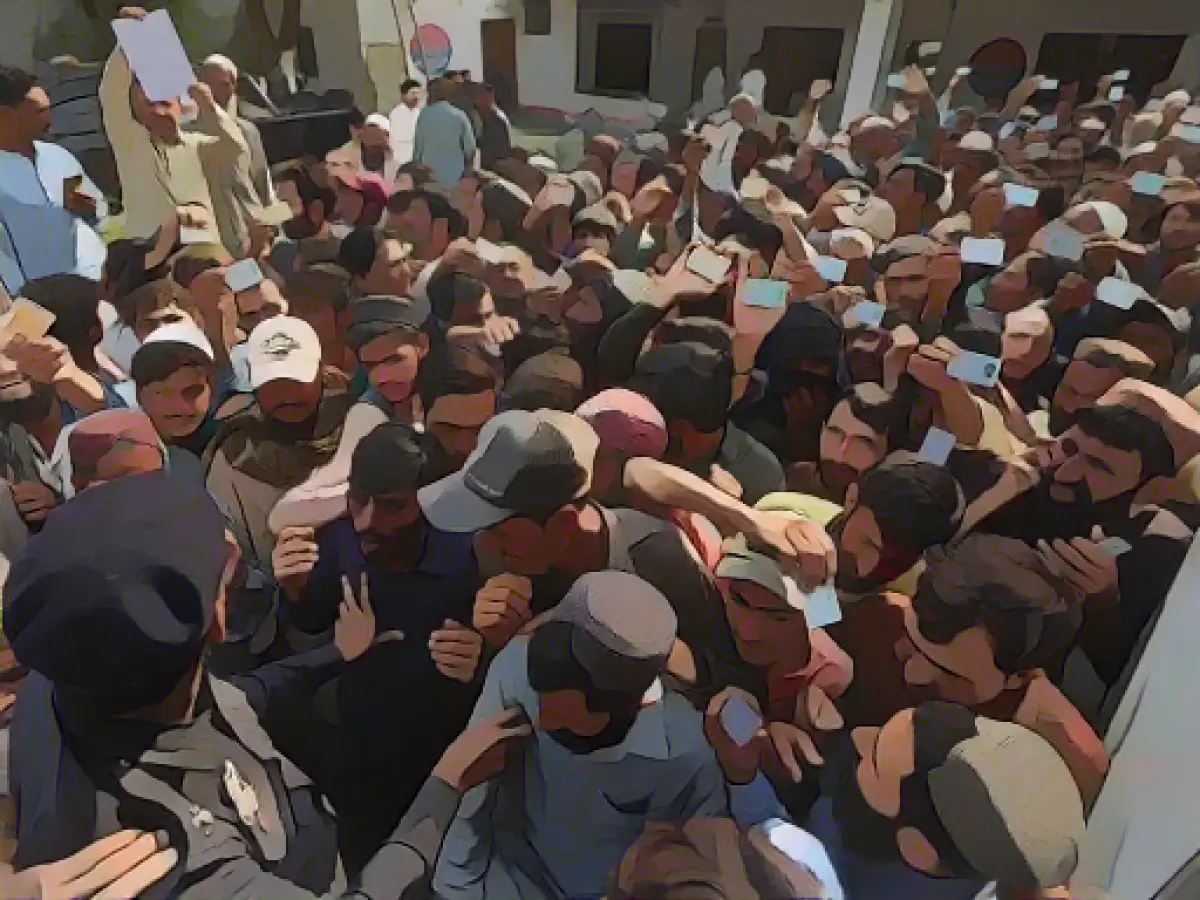Afghans Fleeing in Mass Exodus from Pakistan Due to Deportations
More than 300,000 Afghans have left Pakistan in recent weeks, as a result of the country's mass deportation campaign. Authorities in border regions reported this information to the German Press Agency. The surge in migration follows the Pakistani government's announcement in early October that refugees without legal residency must leave the country by November 1.
Approximately 4,000 individuals cross the Torcham border crossing daily, heading towards Afghanistan. The Pakistani government aims to deport Afghans from Taliban-ruled neighboring countries, who make up the largest group of unregistered migrants in Pakistan. According to official figures, around 4.4 million Afghan refugees reside in Pakistan, with 1.7 million lacking proper documentation.
The Pakistani government justified the deportations by citing security concerns and the country's economic crisis, as well as blaming unregistered refugees for the Pakistani Taliban (TTP) strengthening. However, human rights activists accuse authorities of conducting raids and arrests against registered Afghans, despite their legal status in Pakistan.
Mass Deportations Spark Controversy
The Pakistani government's decision to deport refugees without legal residency has sparked concerns among human rights activists. These activists claim that authorities conduct raids and arrests against registered Afghans, despite their legal status in the country. Additional concerns arise from the escalation of deportations due to conflicts and instability in Afghanistan, forcing many refugees to seek refuge in Pakistan.
Enrichment Data:
Deportations are primarily fueled by several factors:
- Security concerns: Government authorities allegedly mention an increase in crime and violence, such as suicide attacks [1].
- Political pressures: Some argue that the move serves Pakistan's military to pressure the Islamic Emirate of Afghanistan into a more cooperative foreign policy [1].
- Economic crisis: Pakistan allegedly uses Afghan immigrants as scapegoats for the country's economic struggles, leading to collective punishment [1].
Impacts of Mass Deportations
The effects of mass deportations are multifaceted and have far-reaching consequences:
- Human rights concerns: The forced return of refugees puts them at risk, particularly those fleeing Afghanistan after the Taliban's takeover in 2021 [1][3].
- Bilateral tensions: The mass deportations have strained relations with the Taliban government, which condemns Pakistan's actions and urges more leniency for Afghans leaving the country [1][2].
- Economic and social disruption: Many Afghan businesses and shops have closed due to fear of police actions, resulting in economic and social instability [2].
- Squalid living conditions: Returnees face severe living conditions in Afghanistan, including a lack of food, shelter, and basic necessities [4].
Human Rights Activists' Response
Human rights organizations condemn the mass deportations and call for action:
- UN and Human Rights Watch: Both organizations demand a halt to the deportations and due process for legal refugees. Additionally, they ask Western nations to speed up the immigration process for those at risk [1][3].
- Amnesty International: This group advocates for the reversal of the decision and condemns Pakistani authorities for arresting and harassing registered Afghans [2].
- UNHCR and IOM: The UN and IOM express concern over the plan's implementation, urging Pakistan to prioritize human rights standards and ensure safety for all Afghan nationals [3].
- HRW's Criticism: Human Rights Watch criticizes the forced removal of Afghan refugees as a "world's largest unlawful mass forced return of refugees in recent times," stressing that any forced return breaches international law [4].
In conclusion, the mass deportation of Afghan refugees from Pakistan is a pressing issue with profound human rights implications. Human rights activists are actively advocating for the protection and safety of these vulnerable populations.








